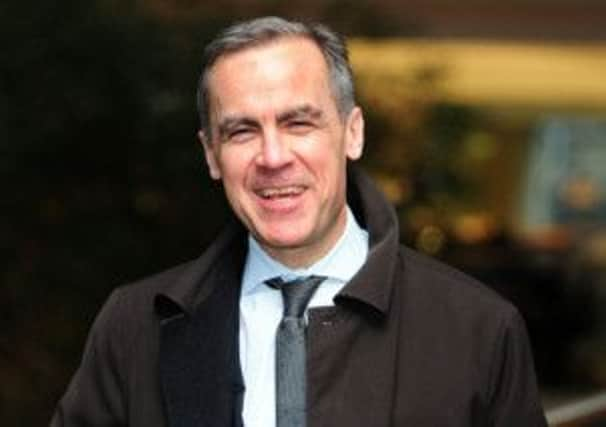Comment: Currency union is can of worms for SNP


The governor of the Bank of England was not giving much away beyond his speech at the George Hotel and had clearly been well-briefed, not least to mind his language. Not that the Canadian was likely to resort to any profanities. Carney would have been warned that every word he uttered would be scrutinised forensically for clues as to where he stood on the indy issue.
So, even if he had opened his address to business leaders with the remark: “CU, Jimmy,” it could not, in the context of the debate, have been seen as threatening or patronising; merely an introduction to the big issue of the day: currency union.
Advertisement
Hide AdAdvertisement
Hide AdThis was always going to be the big one. Devolution has shown that it has been possible to split off otherwise integrated services such as environment, health and transport. But the economy is another matter and how it functions is fundamental to the independence question.
What is emerging from the fog of debate over the pound is that the politicians will play word games with the public in order to prove their case. If it takes semantics to do that, then so be it.
Carney’s “technocratic assessment” of what makes an effective currency union was his way of saying he was strictly non-partisan and to that extent he would have been satisfied that both camps claimed that his comments endorsed their argument. But did his statement about “some ceding of national sovereignty” amount to surrendering full monetary and fiscal policy to Westminster and the Bank of England? Or would an independent Scotland in a currency union merely be forced to make some concessions?
Unionists claimed Carney blew the case for currency union out of the water while First Minister Alex Salmond, said Scotland would accept the need to forfeit control of monetary policy – the setting of interest rates, et al – but would retain control of fiscal policy, or taxation.
The next step in this argument revolves around the difference between tax policy and tax rates. Salmond appears to concede that London would establish limits on borrowing and spending, but he argues that Edinburgh would be free to set whatever rates it chose: it could slash income tax thresholds and those on corporation tax, vary the VAT levy and scrap the bedroom tax. Even introduce a new tax. As long as it stayed within its limits it would have the freedom to tax and spend to suit its needs. Is that a surrendering or a retention of tax policy?
For staunch nationalists, having London retain control of the purse strings in any form does not equate to true independence and this could prompt a battle within the SNP.
Some believe Salmond is not totally committed to buying the full independence ticket and that he would be happy with a form of “indy-lite” or “devo max” to give Scotland the extra powers it needs to loosen the ties with London. There is a view that whatever the outcome of September’s referendum this is the most likely scenario. And that brings us back to a whole set of other word games.
Rivals well matched in fight for football TV viewers
NOW that we are getting into the business end of the football season and transfer deadline day has passed, it’s time to assess who will win the big battle: BSkyB or BT?
Advertisement
Hide AdAdvertisement
Hide AdThe battle over football television viewers is proving to be one of the toughest-tackling contests for some time and both companies claimed last week to be gaining subscribers. So somebody must be losing them.
City analysts admit to being a little bemused by where all these new customers are coming from and are making assumptions that the other players in the broadband market – such as TalkTalk and Virgin – must be losing out.
BT has certainly shaken up the market and is taking full advantage of its wires reaching almost every household in the land. Wisely, the company has responded to the decline in landline users by moving into the broadband arena and using that to build a substantial television business.
For years BT was suspected of wanting to move in this direction, and it has taken longer than expected, but it has defied naysayers, including those who still believe it will go the way of earlier challengers to BSkyB.
Its satellite rival, however, is fighting back. It launched the Now TV service as a budget version of its main offering and has just signed a deal with Hollywood studio HBO that has expanded its range of TV shows.
This is a closely fought contest, but the biggest winners could be the viewers if it leads to a price war. Both companies have talked loosely of a content-sharing deal to cut costs, allowing each to show the other’s programmes. That may be forced upon them if the big football clubs demand even higher rights next time around.
A score draw looks to be on the cards.